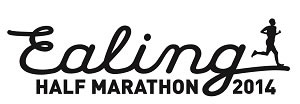Ealing's Reluctant Runner Has Blisters
As the big day gets ever closer my feet are playing up
It's getting too close for comfort.
I've been increasing my training and have now attempted both sections of the 13.1 miles (not all together though). It's as hard as I remember it from last year.
My rush to get fit for the EHM has had a few side effects... namely I've developed runners feet. In that I mean blisters and black toe nails... lovely!
Looking into the issue I realise I have made a number of silly mistakes, so thought I would write up a few tips from the people who know about these things... Carnation foot people.
Tapering
Many runners do not realise that they should begin to taper their training a couple of weeks before the marathon, that is, reducing their training to avoid injuries and overexertion (oh dear - I really shouldn't have left it so late should I?)
Carnation's Podiatrist, Dave Wain, advises:
- Cut back on the distance and intensity of your training to make sure you do not put yourself at risk of straining muscles. It is important that your body has recovered fully from previous training by the day of the marathon, so if you have been running 35 miles a week (ha!), take that down to 30 and then 20 in the couple of weeks leading up to the big day
- There is little preparation you can do two weeks before the race that will enhance your performance on the day so REST, especially if you have suffered from any niggles during training
- If blisters do occur don't be tempted to pop them! Use a blister plaster, which creates a controlled environment for the rapid healing.They can also protect the skin from bacteria and help relieve the pain caused by friction and pressure. Carnation Footcare Hydro blister (£1.99 from independent pharmacies)
- Make sure your trainers aren't too tight and wear mositure wicking socks which contain cotton and silver layers, such as Carnation's Silversocks (silversock.co.uk). The inner cotten layer is breathable, while the outer layer regulates temperature and allows moisture to be drawn through the fibres for subsequent evaporation.
Recovery from a marathon/half marathon
Undertaking a marathon puts a great strain on your body. After months of training and the big day, your body will inevitably be suffering from numerous aches and pains.
Expect to be stiff and sore. Running a marathon puts immense pressure on your feet so blisters, pains and aches are extremely common. Blisters will affect your gait when walking so try not to embark on any long walks or runs until they have healed as this could cause more damage to your already sore muscles.
Aches and pains in the soles of your feet are common after running so try using a Carnation Footcare PediRoller (£6.99 from Boots and independent pharmacies), which helps to stretch the muscles in the bottom of the foot and relieve pain. It is particularly helpful for those who suffer from conditions such as plantar fasciitis.
Rest! Even if your feet feel OK, they will be recovering for at least a week after a marathon. Limit your walks to under an hour for the first week and give yourself at least 4-6 weeks before resuming any intense training.
When you do start running again, try using a protective padding such as Carnation Footcare Fleecy Padding (£1.65 from independent pharmacies) to prevent rubbing.
If at any point joints are red, swollen and sharply painful, make sure you rest immediately and if the pain continues, visit your GP.
Any other top tips?
Annemarie Flanagan
11th September
